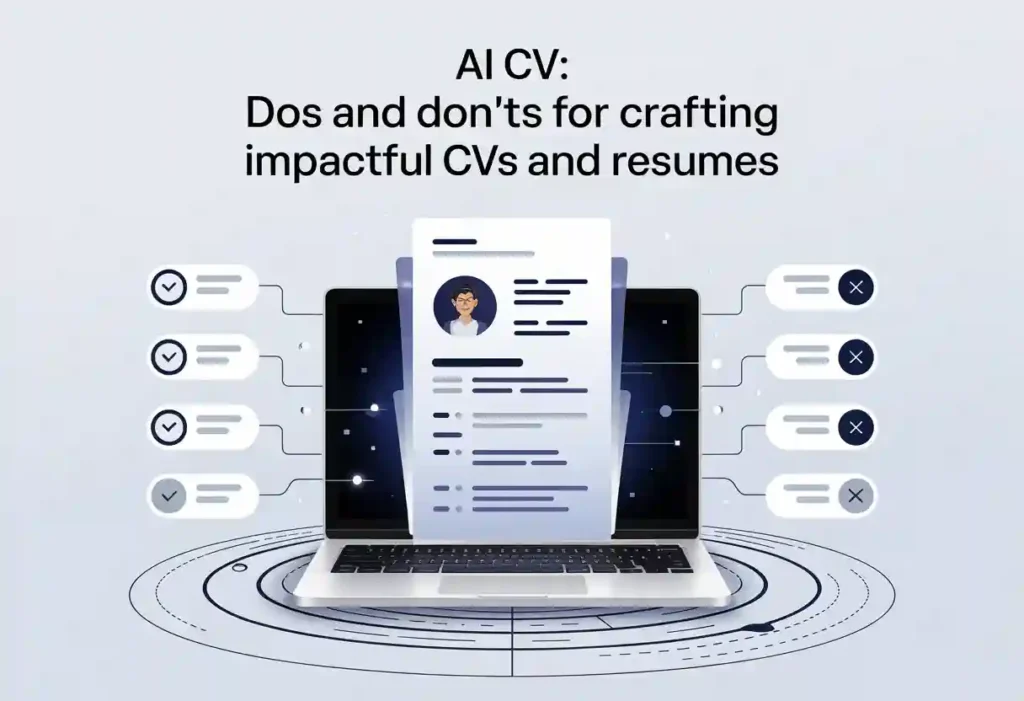How to Write a Compelling Work Experience Resume Section
A resume work experience section can make or break your chances of landing a dream job.
You’re likely to breeze through other areas of your resume but find the work experience section challenging.
Perhaps you fail to figure out anything worth mentioning or remember anything you did. But this doesn’t have to be the case.
So, how do you write a resume work experience section that stands out?
There’s no doubt you have the necessary skills to get the position.
Still, your prospective employer must prove that you’re worth the job offer.
And this is where your resume’s work experience section will come into play.
Most job seekers struggle to write a concise and compelling resume work experience section.
This section in your resume should clearly and concisely showcase that you have the necessary qualifications.
So, use the section to portray yourself as a likable person that the employer must invite for an interview.
Be Honest About Your Job History
Everything you include in the work experience section must be factual.
Whether it’s the companies you’ve worked for, the locations of these companies, or dates of employment, everything should be factually correct.
Honesty is one of the soft skills hiring managers will look for when recruiting.
You don’t want to get embarrassed when your interviewers note that you lied in a given section.
Also, being dishonest may tarnish all the skills and accomplishments you’ve worked so hard to earn.
Include Strong Action Verbs
Your word choice matters a lot when writing work experience in a resume. The idea here is to make your prospective employer visualize your contributions.
Use strong action verbs to introduce your duties, responsibilities, or accomplishments. Also, ensure you vary action verbs to avoid all your descriptions sounding the same.
These are some of the action verbs you might consider using in your resume work experience section:
- supervised
- assisted
- adapted
- built
- cooperated
- exchanged
- implemented
- awarded
- fostered
For more action words, see our list of 250+ action verbs for your resume.
When introducing ongoing activities, use the present tense.
Use the past tense to introduce activities you’re no longer involved in.
Recommended Reading: work experience in resume
- How to ace remote interviews
- Video interview tips
- Getting the right help in your career journey
List Accomplishments from Previous Jobs
You need more than just listing your duties and responsibilities in your previous companies.
To write a resume work experience section that will land you the interview, you must mention a few accomplishments or achievements.
While the prospective employer will know what you did after listing your duties and responsibilities, they’ll also want to know if there were accomplishments.
If you made any positive impact or contribution to the company, you already have your ace in the hole.
However, ensure that the accomplishments you include are relevant to the new position you’re applying for.
With relevant achievements, your hiring manager can rest assured that you can deliver meaningful results to the company.
Further Reading
- How to write accomplishments in resumes
- Create an effective CV for free
- Create your cover letter
- Create your LinkedIn profile for free
Use Numbers and Percentages
When you use numbers in writing, they have a way of attracting your audience’s attention.
You can apply this when writing your resume’s work experience section.
You can quantify your responsibilities and successes from your previous positions.
Here, you can use numbers, percentages, and currency values.
Note that you should spell out every number below ten and write every number above 10 in symbols.
Quantifying your successes is something to be proud of.
When you include them, the hiring manager will know you can bring such achievements to their company.
For example, you can quantify the following:
- the number or percentage of files you organized
- people you managed
- clients you acquired within a given period
- client retention, client referrals, or client satisfaction
Mention Any Awards, Honors, or Accolades
You can include any awards, honors, or accolades you received during your past employment.
They show the accomplishments you made working for other companies.
Including awards, honors, and accolades gives the hiring manager a better idea of what you can accomplish in your field of work if they give you the opportunity.
The thing is, awards, honors, or accolades don’t have to be shiny.
Some of the professional awards you can put in your resume work experience section include:
- Employee of the Month awards
- Leadership awards
- Innovation awards
- Top performer awards
- Volunteering awards
Ensure you include the title of your award, the year awarded, who gave you the award, and why you won the prize.
These awards can help increase the chances of landing the interview faster than your competitors, who don’t include any awards.

List a Few Skills You Developed
You won’t land that dream job without proving you have the necessary skills.
The prospective recruiter will know you can succeed by listing some of your best skills.
Often, job seekers find it difficult to identify the skills needed to include.
To make it easier, assess your achievements or strengths that coworkers recognize.
Ensure you include a mix of hard and soft skills.
Every type of job will have a set of technical skills.
These skills are more specialized and are often measurable.
Some of the hard skills you might include are:
- Data analysis
- Mathematics
- Project management
- Computer software and application knowledge
- Writing skills
- Calendar management
- Shipping
- Referral marketing
- Contract negotiation
- Lead prospecting, among others
Conversely, soft skills (such as people skills or social skills) come naturally or are strengthened over time.
You can apply soft skills in any job. Some of the top soft skills to include are:
- Problem-solving
- Critical thinking
- Flexibility
- Communication skills
- Teamwork
- Creativity
- Organization skills
- Attention to detail
- Responsibility, among others
For a comprehensive list, see our 24 categories of soft skills you can choose from for your resume.
Explain Why Your Experience Makes You the Perfect Candidate
Your prospective employer will review your resume’s work experience section, asking, “What do you have to offer my company?”
Most job seekers think listing their responsibilities, skills, and achievements will make them stand out.
The hiring manager seeks an employee to fill a gap and solve the problem.
After highlighting your responsibilities, accomplishments, and best skills, you can further prove you’re the right candidate.
The good thing is that you have already mentioned that you worked elsewhere and made a few achievements.
You can use this chance to clear any doubts by stating that you have all it takes to be the right candidate.
Use your previous successes and best skills to elaborate that you will do everything possible to make such contributions if offered the job.
Final Thoughts
You now have the best tips for writing a resume work experience section that stands out.
After verifying that you provided the necessary information, you can head to other areas of your resume.
But before that, ensure you conclude your work experience section with a sentence summarising how well-equipped you are for the job.
![How_To_Write_An_Amazing_Work_Experience_Section_Of_Your_Resume[1] Smiling professional highlighting work experience in resume](https://cvjury.com/wp-content/uploads/elementor/thumbs/14._How_To_Write_An_Amazing_Work_Experience_Section_Of_Your_Resume1-r17qfb7zpyioe2hdglv6uxemwtlbbvgrmbwdzn8dvk.webp)


